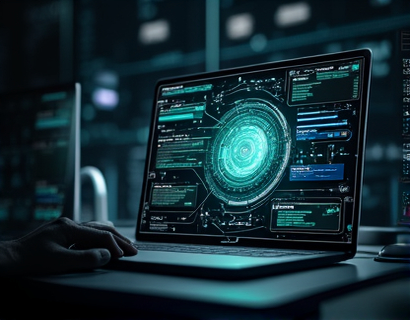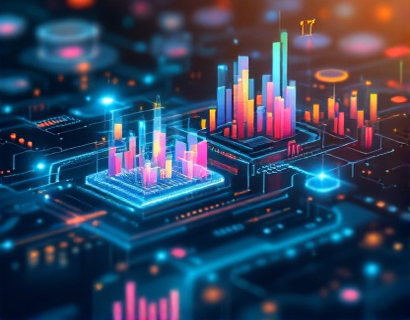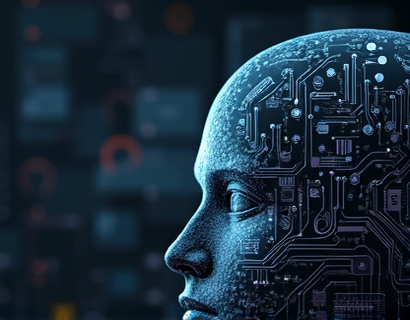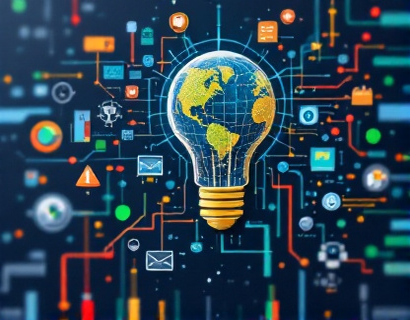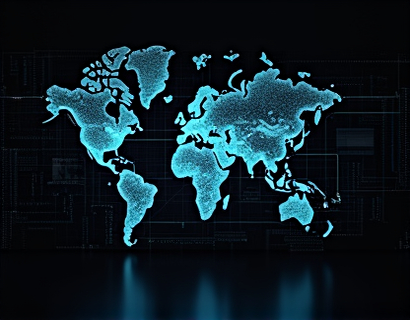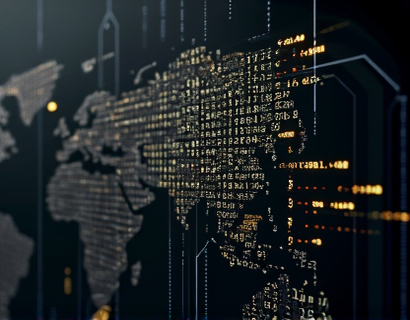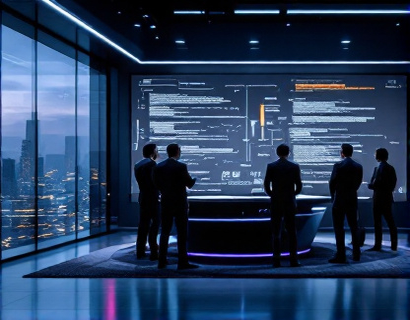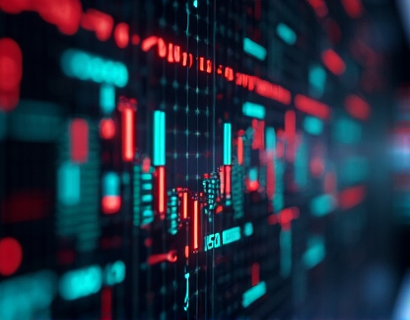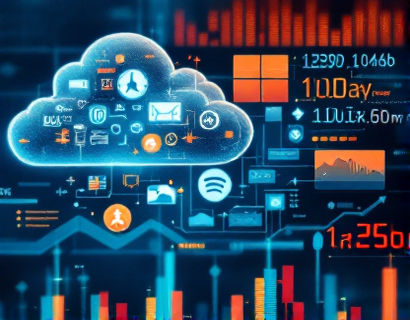AI and Crypto: Transforming Productivity in the Digital Age
The convergence of artificial intelligence (AI) and cryptocurrency is revolutionizing the way we manage tasks and enhance productivity in the digital age. This synergy is not just a technological curiosity but a transformative force that is redefining efficiency across various industries. As we delve into this topic, it's essential to understand how these advanced technologies are intertwining to create a more streamlined and effective work environment.
The integration of AI and cryptocurrency is rooted in the fundamental principles of both technologies. AI, with its ability to process vast amounts of data and learn from patterns, is enhancing the functionality of blockchain-based systems. Cryptocurrency, on the other hand, provides a decentralized and secure medium for transactions, which is crucial for the seamless operation of AI-driven applications. Together, they offer a powerful toolkit for optimizing productivity and task management.
Enhanced Task Management through AI and Crypto
One of the most significant impacts of this technological blend is in the realm of task management. Traditional task management tools often struggle with scalability and security, especially when dealing with large datasets or complex workflows. AI and cryptocurrency address these issues by providing decentralized, transparent, and secure solutions.
AI algorithms can analyze user behavior and preferences to predict task priorities and automate routine tasks. For instance, smart contracts on blockchain can be programmed to execute tasks based on predefined conditions, ensuring that workflows are executed efficiently and without human intervention. This automation not only saves time but also reduces the potential for human error.
Moreover, AI-driven task management systems can integrate with cryptocurrency-based reward mechanisms. These mechanisms incentivize users to complete tasks efficiently and accurately. For example, a decentralized application (dApp) could use AI to monitor the progress of a project and distribute cryptocurrency rewards to team members based on their contributions. This gamification of work not only boosts motivation but also aligns individual goals with the overall project objectives.
Streamlined Workflows and Decentralized Collaboration
The combination of AI and cryptocurrency is also transforming how teams collaborate and manage workflows. Decentralized platforms powered by blockchain technology eliminate the need for intermediaries, allowing for direct and transparent interactions between team members. AI enhances this by providing intelligent tools that facilitate communication, project tracking, and resource allocation.
For instance, AI-powered chatbots can manage real-time communication, summarizing discussions and action items to keep everyone on the same page. These chatbots can also integrate with cryptocurrency wallets to handle payments and rewards seamlessly. This integration ensures that financial transactions are instantaneous and secure, reducing the overhead associated with traditional payment methods.
Decentralized autonomous organizations (DAOs) are another exciting application of AI and cryptocurrency in workflow management. DAOs use smart contracts to govern decision-making processes, ensuring that all members have a say in the direction of the organization. AI can analyze data from various sources to provide insights and recommendations, helping DAOs make informed decisions. This level of transparency and inclusivity fosters a collaborative environment where productivity is maximized.
Data Security and Privacy
Security and privacy are paramount in any digital transformation, and the combination of AI and cryptocurrency offers robust solutions. Blockchain's inherent security features, such as immutability and cryptographic hashing, ensure that data is tamper-proof. AI enhances this by continuously monitoring for anomalies and potential threats, providing real-time alerts and automated responses to security breaches.
Cryptocurrency-based identity verification systems can also enhance data privacy. By using blockchain to store and manage digital identities, users have greater control over their personal information. AI can further secure these systems by analyzing patterns to detect and prevent fraudulent activities. This dual approach ensures that sensitive data is protected while maintaining the efficiency of AI-driven processes.
Optimized Resource Allocation
AI and cryptocurrency are also revolutionizing how resources are allocated and managed. In traditional settings, resource allocation is often centralized and subject to human biases and inefficiencies. AI algorithms can analyze vast amounts of data to optimize resource distribution, ensuring that resources are used where they are most needed.
Cryptocurrency plays a crucial role in this by providing a transparent and traceable means of tracking resource usage. Smart contracts can automate the allocation and reallocation of resources based on real-time data, ensuring that projects receive the necessary resources without delay. This not only improves efficiency but also reduces costs associated with manual resource management.
For example, in the field of supply chain management, AI can predict demand and optimize inventory levels, while cryptocurrency can facilitate seamless and secure transactions between suppliers and buyers. This integration ensures that the supply chain operates smoothly, with minimal waste and maximum productivity.
Innovative Financial Models
The intersection of AI and cryptocurrency is also giving rise to innovative financial models that support productivity and task management. Tokenized economies, where work and contributions are represented by tokens, are becoming increasingly popular. These tokens can be used to reward productivity, facilitate peer-to-peer transactions, and even fund projects through crowdfunding platforms powered by blockchain.
AI can enhance these financial models by providing predictive analytics to forecast market trends and optimize token distributions. For instance, AI can analyze user engagement and contribution levels to determine the appropriate token rewards, ensuring that the system remains fair and motivating. This data-driven approach to financial modeling enhances the overall efficiency and sustainability of these systems.
Future Prospects and Challenges
As the integration of AI and cryptocurrency continues to evolve, the potential for further innovation is vast. One of the most promising areas is the development of AI-powered virtual assistants that operate on blockchain networks. These assistants can manage complex tasks, from scheduling and communication to financial transactions, all while ensuring transparency and security.
However, this exciting future is not without challenges. Regulatory frameworks are still catching up with the rapid pace of technological advancement, and there is a need for clear guidelines to ensure the responsible use of AI and cryptocurrency. Additionally, the technical complexity of these systems requires a skilled workforce capable of developing and maintaining them.
Despite these challenges, the benefits of AI and cryptocurrency in enhancing productivity and task management are undeniable. As more organizations and individuals adopt these technologies, we can expect to see a significant shift towards more efficient, secure, and collaborative work environments.
In conclusion, the blend of AI and cryptocurrency is not just a technological trend but a fundamental transformation of how we approach productivity and task management. By leveraging the strengths of both technologies, we can create a future where work is more efficient, secure, and rewarding.









